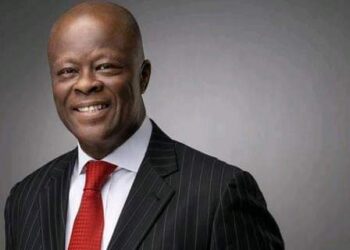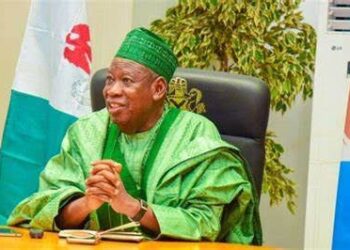Edo state governor, Mr. Godwin Obaseki has said the state doesn’t have any problem with the federal government’s policy to move the nation’s economy to a cashless one, declaring that “it’s the best thing for our banking system”.
Obaseki however, urged the federal fovernment to do the policy as seamlessly as possible and improve on communication to reduce the fear of the people.
The governor disclosed this to journalists on Monday after a closed-door meeting with officials of the Central Bank of Nigeria (CBN) and senior executives of banks in the state.
Obaseki disclosed that the meeting was to proffer a lasting solution to the cash crunch in the State and country.
According to him, “After much deliberation, we have come to the following resolution that the policy of moving Nigeria’s economy to a cashless one should be encouraged as it’s the best thing for our banking system.
“The Edo State Government doesn’t have any problem with the Federal Government’s policy to move the nation’s economy to a cashless one.”
Continuing, he urged the people to make payments using alternative means through transfers or the use of USSD codes.
The governor said: “We will release names of POS operators in the State. They are not only to pay you cash but also help you with payment through transfer.
“The Edo State Government has launched its residency identity card which gives you the capacity to make payments. We are working closely with the CBN, and by next week, we will start with the full rollout to help Edo residents.
The CBN Director of Risk Management, Abuja, Dr. Blaise Ijebor noted: “We want to drive a cashless-like environment in Nigeria because it’s beneficial to us.
“I encourage you to use alternative means as possible as we know some ATMs are not paying. We will do our best within a day or two to make sure all the ATMs are paying for those that need cash.”
He said a monitoring team, comprising the EFCC and ICPC is going around the state to identify those conniving to create artificial scarcity of the naira.




